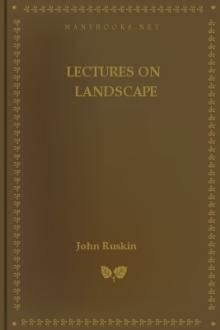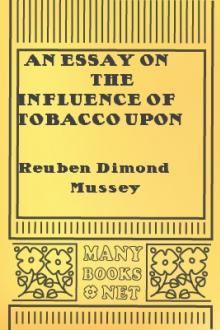Lippincott'S Magazine Of Popular Literature And Science, Volume 26 December, 1880. by Various None (smart ebook reader .txt) 📕

- Author: Various None
Book online «Lippincott'S Magazine Of Popular Literature And Science, Volume 26 December, 1880. by Various None (smart ebook reader .txt) 📕». Author Various None
Important A Thing The Quality Of The Opera-Book Is To The Composer Of
The Score. These Earlier Librettos Were Admirably Made: They Are Models
Of What A Comic Opera-Book Should Be. I Cannot Well Imagine A Better Bit
Of Work Of Its Kind Than The _Belle Helene_ Or The _Grande Duchesse_.
Tried By The Triple Test Of Plot, Characters And Dialogue, They Are
Nowhere Wanting. Since Mm. Meilhac And Halevy Have Ceased Writing For M.
Offenbach They Have Done Two Books For M. Charles Lecoq--The _Petit Duc_
And The _Grande Demoiselle_. These Are Rather Light Comic Operas Than
True _Operas-Bouffes_, But If There Is An Elevation In The Style Of The
Music, There Is An Emphatic Falling Off In The Quality Of The Words.
From The _Grande Duchesse_ To The _Petit Duc_ Is A Great Descent: The
Former Was A Genuine Play, Complete And Self-Contained--The Latter Is A
Careless Trifle, A Mere Outline Sketch For The Composer To Fill Up. The
Story--Akin In Subject To Mr. Tom Taylor'S Fine Historical Drama
_Clancarty_--Is Pretty, But There Is No Trace Of The True Poetry Which
Made The Farewell Letter Of Perichole So Touching, Or Of The True Comic
Force Which Projected General Bourn. _Carmen_, Which, Like _Perichole_,
Owes The Suggestion Of Its Plot And Characters To Prosper Merimee, Is
Little More Than The Task-Work Of The Two Well-Trained Play-Makers: It
Was Sufficient For Its Purpose, No More And No Less.
Volume 26 Title 1 (Lippincott'S Magazine Of Popular Literature And Science) Pg 72Of All The Opera-Books Of Mm. Meilhac And Halevy, That One Is Easily
First And Foremost Which Has For Its Heroine The Helen Of Troy Whom
Marlowe'S Faustus Declared
Fairer Than The Evening Air,
Clad In The Beauty Of A Thousand Stars.
In The _Belle Helene_ We See The Higher Wit Of M. Meilhac. M. Halevy Had
Been At The Same College With Him, And They Had Pored Together Over The
Same Legends Of Old Time, But Working Without M. Meilhac On _Orphee Aux
Enfers_, M. Halevy Showed His Inferiority, For _Orphee_ Is The
Old-Fashioned Anachronistic Skit On Antiquity--Funny If You Will, But
With A Fun Often Labored, Not To Say Forced--The Fun Of Physical
Incongruity And Exaggeration. But In The _Belle Helene_ The Fun, Easy
And Flowing, Is Of A Very High Quality, And It Has Root In Mental, Not
Physical, Incongruity. Here Indeed Is The Humorous Touchstone Of A Whole
System Of Government And Of Theology. And, Allowing For The Variations
Made With Comic Intent, It Is Altogether Greek In Spirit--So Greek, In
Fact, That I Doubt Whether Any One Who Has Not Given His Days And Nights
To The Study Of Homer And Of The Tragedians, And Who Has Not Thus Taken
In By The Pores The Subtle Essence Of Hellenic Life And Literature, Can
Truly Appreciate This French Farce. Planche'S _Golden Fleece_ Is In The
Same Vein, But The Ore Is Not As Rich. Frere'S _Loves Of The Triangles_
And Some Of His _Anti-Jacobin_ Writing Are Perhaps As Good In Quality,
But The Subjects Are Inferior And Temporary. Scarron'S Vulgar Burlesques
And The Cheap Parodies Of Many Contemporary English Play-Makers Are Not
To Be Mentioned In The Same Breath With This Scholarly Fooling. There Is
Something In The French Genius Akin To The Greek, And Here Was A Gallic
Wit Who Could Turn A Hellenic Love-Tale Inside Out, And Wring The
Uttermost Drop Of Fun From It Without Recourse To The Devices Of The
Booth At The Fair, The False Nose And The Simulation Of Needless
Ugliness. The French Play, Comic As It Was, Did Not Suggest Hysteria Or
Epilepsy, And It Was Not So Lacking In Grace That We Could Not Recall
The Original Story Without A Shudder. There Is No Shattering Of An
Ideal, And One Cannot Reproach The Authors Of The _Belle Helene_ With
What Theophrastus Such Calls "Debasing The Moral Currency, Lowering The
Value Of Every Inspiring Fact And Tradition."
Surpassed Only By The _Belle Helene_ Is The _Grande Duchesse De
Gerolstein_. It Is Nearly Fifteen Years Since All The World Went To
Paris To See An Exposition Universelle And To Gaze At The "Sabre De Mon
Pere," And Since A Russian Emperor, Going To Hear The Operetta, Said To
Have Been Suggested By The Freak Of A Russian Empress, Sat Incognito In
One Stage-Box Of The Little Varietes Theatre, And Glancing Up Saw A
Russian Grand Duke In The Other. It Is Nearly Fifteen Years Since The
Tiny Army Of Her Grand-Ducal Highness Took New York By Storm, And Since
American Audience After Audience Hummed Its Love For The Military And
Walked From The French Theatre Along Fourteenth Street To Delmonico'S To
Supper, Sabring The Waiters There With The Venerated Weapon Of Her Sire.
The French Theatre Is No More, And Delmonico'S Is No Longer At That
Fourteenth-Street Corner, And Her Highness Mademoiselle Tostee Is Dead,
And M. Offenbach'S Sprightly Tunes Have Had The Fate Of All Over-Popular
Airs, And Are Forgotten Now. _Ou Sont Les Neiges D'Antan?_
It Has Been Said That The Authors Regretted Having Written The _Grande
Duchesse_, Because The Irony Of History Soon Made A Joke On Teutonic
Powers And Principalities Seem Like Unpatriotic Satire. Certainly, They
Volume 26 Title 1 (Lippincott'S Magazine Of Popular Literature And Science) Pg 73Had No Reason To Be Ashamed Of The Literary Quality Of Their Work: In
Its Class It Yields Only To Its Predecessor. There Is No Single Figure
As Fine As Calchas--General Boum Is A Coarser Outline--But How Humorous
And How Firm Is The Drawing Of Prince Paul And Baron Grog! And Her
Highness Herself May Be Thought A Cleverer Sketch Of Youthful Femininity
Than Even The Hellenic Helen. It Is Hard To Judge The Play Now. Custom
Has Worn Its Freshness And Made It Too Familiar: We Know It Too Well To
Criticise It Clearly. Besides, The Actors Have Now Overlaid The Action
With Over-Much "Business." But In Spite Of These Difficulties The Merits
Of The Piece Are Sufficiently Obvious: Its Constructive Skill Can Be
Remarked; The First Act, For Example, Is One Of The Best Bits Of
Exposition On The Modern French Stage.
Besides These Plays For Music, And Besides The More Important Five-Act
Comedies To Be Considered Later, Mm. Meilhac And Halevy Are The Authors
Of Thirty Or Forty Comic Dramas--As They Are Called On The English
Stage--Or Farce-Comedies In One, Two, Three, Four, And Even Five Acts,
Ranging In aim From The Gentle Satire Of Sentimentality In _La Veuve_ To
The Outspoken Farce Of The _Reveillon_. Among The Best Of The Longer Of
These Comic Plays Are _Tricoche Et Cacolet_ And _La Boule_. Both Were
Written For The Palais Royal, And They Are Models Of The New Dramatic
Species Which Came Into Existence At That Theatre About Twenty Years
Ago, As M. Francisquc Sarcey Recently Reminded Us In His Interesting
Article On The Palais Royal In _The Nineteenth Century_. This New Style
Of Comic Play May Be Termed Realistic Farce--Realistic, Because It
Starts From Every-Day Life And The Most Matter-Of-Fact Conditions; And
Farce, Because It Uses Its Exact Facts Only To Further Its Fantasy And
Extravagance. Consider _La Boule_. Its First Act Is A Model Of Accurate
Observation; It Is A Transcript From Life; It Is An Inside View Of A
Commonplace French Household Which Incompatibility Of Temper Has Made
Unsupportable. And Then Take The Following Acts, And See How On This
Foundation Of Fact, And Screened By An Outward Semblance Of Realism,
There Is Erected The Most Laughable Superstructure Of Fantastic Farce. I
Remember Hearing One Of The Two Great Comedians Of The Theatre Francais,
M. Coquelin, Praise A Comic Actor Of The Varietes Whom We Had Lately
Seen In a Rather Cheap And Flimsy Farce, Because He Combined "La Verite
La Plus Absolue Avec La Fantasie La Plus Pure." And This Is The Merit Of
_La Boule_: Its Most Humorous Inventions Have Their Roots In The Truth.
Better Even Than _La Boule_ Is _Tricoche Et Cacolet_, Which Is The Name
Of A Firm Of Private Detectives Whose Exploits And Devices Surpass Those
Imagined By Poe In america, By Wilkie Collins In england, And By
Gaboriau In France. The Manifold Disguises And Impersonations Of The Two
Partners When Seeking To Outwit Each Other Are As Well-Motived And As
Fertile In comic Effect As Any Of The Attempts Of Crispin Or Of Some
Other Of Regnard'S Interchangeable Valets. Is Not Even The _Legataire
Universel_, Regnard'S Masterpiece, Overrated? To Me It Is Neither Higher
Comedy Nor More Provocative Of Laughter Than Either _La Boule_ Or
_Tricoche Et Cacolet_; And The Modern Plays, As I Have Said, Are Based
On A Study Of Life As It Is, While The Figures Of The Older Comedies Are
Frankly Conventional. Nowhere In Regnard Is There A Situation Equal In
Comic Power To That In The Final Act Of The _Reveillon_--A Situation
Moliere Would Have Been Glad To Treat.
Especially To Be Commended In _Tricoche Et Cacolet_ Is The Satire Of The
Hysterical Sentimentality And Of The Forced Emotions Born Of Luxury And
Volume 26 Title 1 (Lippincott'S Magazine Of Popular Literature And Science) Pg 74Idleness. The Parody Of The Amorous Intrigue Which Is The Staple Of So
Many French Plays Is As Wholesome As It Is Exhilarating. Absurdity Is A
Deadly Shower-Bath To Sentimentalism. The Method Of Meilhac And Halevy
In Sketching This Couple Is Not Unlike That Employed By Mr. W.S. Gilbert
In _H.M.S. Pinafore_ And _The Pirates Of Penzance_. Especially To Be
Noted Is The Same Perfectly Serious Pushing Of The Dramatic Commonplaces
To An Absurd Conclusion. There Is The Same Kind Of Humor Too, And The
Same Girding At The Stock Tricks Of Stage-Craft--In _H.M.S. Pinafore_ At
The Swapping Of Children In The Cradle, And In _Tricoche Et Cacolet_ At
The "Portrait De Ma Mere" Which Has Drawn So Many Tears In Modern
Melodrama. But Mm. Meilhac And Halevy, Having Made One Success, Did Not
Further Attempt The Same Kind Of Pleasantry--Wiser In This Than Mr.
Gilbert, Who Seems To Find It Hard To Write Anything Else.
As In The _Chateau A Toto_ Mm. Meilhac And Halevy Had Made A Modern
Perversion Of _Dame Blanche_, So In _La Cigale_ Did They Dress Up Afresh
The Story Of The _Fille Du R'Egiment_. As The Poet Asks--
Ah, World Of Ours, Are You So Gray,
And Weary, World, Of Spinning,
That You Repeat The Tales To-Day
You Told At The Beginning?
For Lo! The Same Old Myths That Made
The Early Stage-Successes
Still Hold The Boards, And Still





Comments (0)